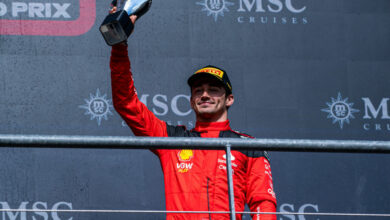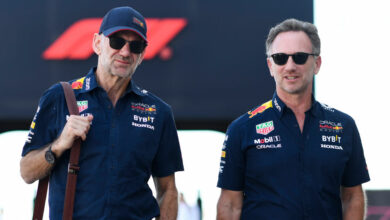Unraveling ‘Crashgate’: Ecclestone’s Memory Wavers, Massa Takes Legal Action
Former F1 Chief's Contradictions Spark Controversy Surrounding 2008 Singapore Grand Prix and Massa's Pursuit of Justice
The Controversy Resurfaces: Ecclestone’s Muddled Memory and Massa’s Legal Pursuit
The world of Formula 1 has always been a melting pot of intrigue, passion, and fierce competition. Among its many memorable moments, the 2008 Singapore Grand Prix, forever etched in history as the ‘Crashgate’ scandal, stands as a stark reminder of the sport’s darker undercurrents. However, recent revelations from none other than former F1 chief Bernie Ecclestone have thrown the spotlight back onto this enigmatic incident, leaving the F1 community and fans in bewilderment.
Ecclestone, a figure known for his strategic mind and influence over the sport’s trajectory, has now cast a shadow of doubt over his own words. In an astonishing twist of events, he has professed a lapse in memory regarding an interview that transpired earlier this year. This interview, as fate would have it, has propelled Brazilian driver Felipe Massa into legal action territory, adding yet another layer of complexity to the already intricate ‘Crashgate’ narrative.
“We wanted to protect the sport and save it from a huge scandal.
“At the time, the rule was that a World Cup ranking was untouchable after the FIA awards ceremony at the end of the year. So Hamilton was offered the trophy and everything was fine.
“I still feel sorry for Massa today.
“He won the final in his home race in Sao Paulo and did everything right. He was robbed of the title he deserved while Hamilton had all the luck in the world and won his first championship.
“Today I would have settled it differently. That is why, for me, Michael Schumacher is still the sole record holder. Even if the statistics say otherwise.”
The pivotal moment in question unfolded during the 2008 Singapore Grand Prix, an event that would become a defining chapter in Formula 1 folklore. Nelson Piquet, a driver under the Renault banner, executed a crash that appeared orchestrated – a calculated move that sent shockwaves through the racing world. This orchestrated crash, purportedly designed to shuffle the race dynamics, ended up favoring Piquet’s teammate, the skillful Fernando Alonso. Seizing the advantage bestowed upon him, Alonso masterfully navigated his way through the pack, ultimately clinching a remarkable victory.
Yet, the narrative doesn’t conclude there. Felipe Massa, who had held a commanding position before the orchestrated crash, encountered a fateful pit stop mishap that dashed his hopes of securing precious points. The culmination of these events was a bittersweet victory for Lewis Hamilton, who clinched the drivers’ championship by the slimmest of margins – a single point – over the unfortunate Massa.
“I don’t remember any of this, to be honest. I don’t remember giving the interview, for sure.”
The intrigue deepens with Ecclestone’s puzzling statements. Allegedly, he had previously gone on record suggesting a prior awareness of the orchestrated nature of Piquet’s crash, implicating not only himself but also the then FIA President, Max Mosley. However, this narrative now appears to have taken a U-turn. Ecclestone’s recent dialogue with Reuters paints a picture of uncertainty and ambivalence, raising questions about the veracity of his earlier claims.
In this ongoing saga, the complexities of memory, accountability, and the pursuit of justice collide. Ecclestone’s unexpected revision of his stance raises eyebrows and highlights the slippery nature of history, memory, and the high-stakes world of Formula 1 politics.




